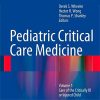CT-based Measurements Beat Framingham Risk Score in Predicting Future CVD Events
cardiovascularbusiness.comAssessment of abdominal aortic calcification using computed tomography (CT) is a highly effective predictor of future heart attack and CVD risk, according to research published in Radiology Oct. 2—more effective even than the Framingham risk score, which has been relied upon for more than two decades. Stacy D. O’Connor, MD, MPH, an assistant professor of radiology at the Medical College of Wisconsin in Milwaukee, led the project, which assessed the relationship between cardiovascular events and abdominal aortic calcification in 829 asymptomatic patients in their 50s. O’Connor said her team attempted the CT approach because, as well-known and widely used as the Framingham risk score is, many patients who use it fall into the “indeterminate risk” category, meaning they might benefit from additional noninvasive risk assessment.

















